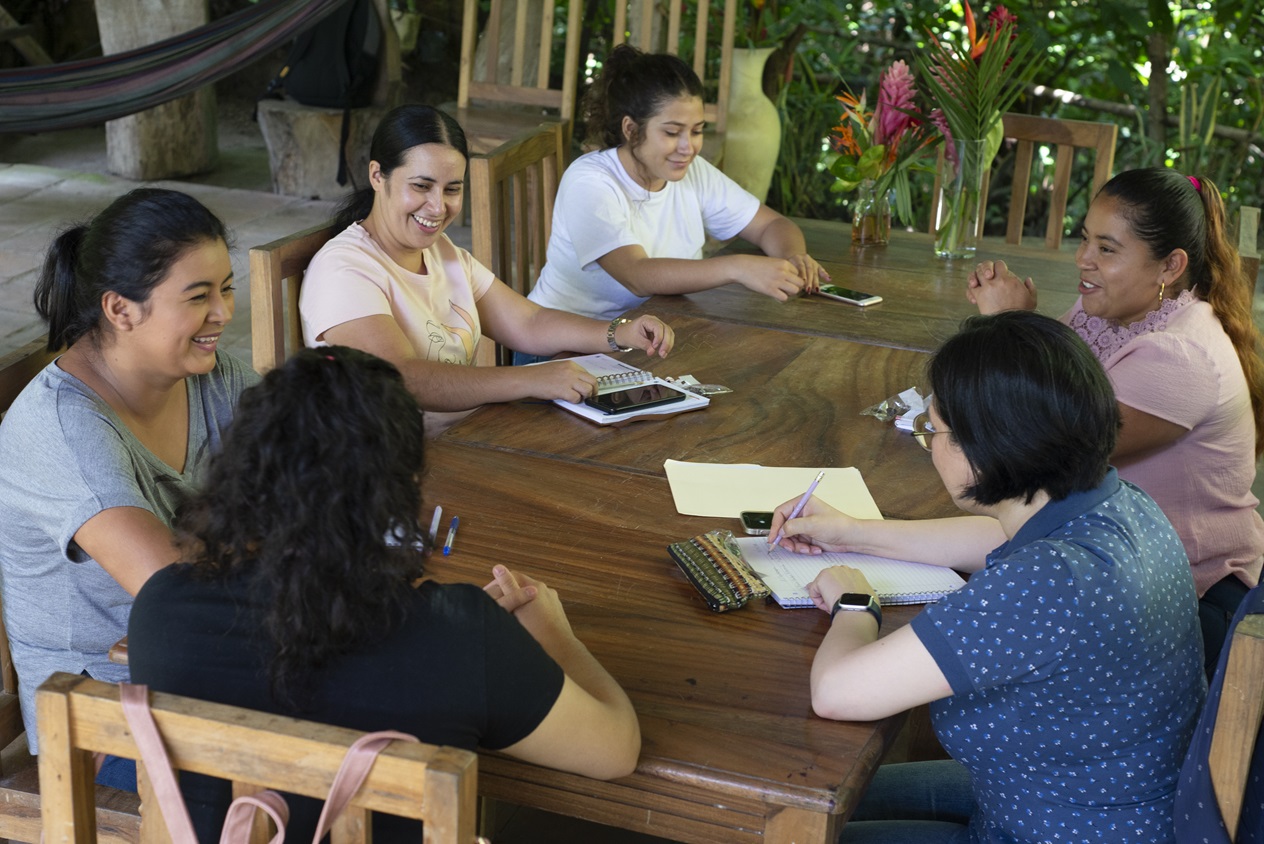In the global fight for women’s rights, grassroots organisations are at the forefront of driving positive change within their communities. Fondo Centroamericano de Mujeres (FCAM), a partner of Both ENDS, has been pioneering a participatory grantmaking approach to fund feminist and women’s movements across Central America. Going beyond traditional donor-driven grant delivery, FCAM shifts decision-making power about how funds are distributed and used to the organisations themselves. The approach is based on the conviction that self-led women, non-binary and trans people organised to respond to the problems they face, are best suited to determine their needs and propose solutions for lasting change. What does this mean in practice? How to go about it? Programme Coordinator María Estelí González highlights the key elements of FCAM’s approach and reflects on the organisation’s contributions towards a more just and equitable funding landscape.
“The women who are on the ground, working at the community level, know best what are their main needs, their main demands, and the solutions to the problems they face.” – María Estelí González
FCAM uses extensive outreach strategies to reach a diverse range of movements, particularly those led by youth, LGBTQ+, indigenous, afro-descendant, women with disabilities, migrants and other marginalised groups. Open calls for proposals are disseminated through traditional and alternative media, local radio and TV stations, electronic mailing lists and FCAM’s network of sister organisations, including current grantees. The organisation ensures that the target group is researched on forehand, in order to remove barriers to participation. For example, explains María Estelí, =the FCAM team underwent specialist training and carried out an internal reflection process to guarantee broad participation of women with disabilities. In addition, FCAM removes certain requirements typically imposed by traditional funders, such as legal registration of organisations. This allows groups which have been historically excluded, to participate in the grantmaking process.
A democratic proposal selection process
After the deadline for submitting proposals, FCAM invites all eligible applicants and current partners to participate in an online democratic voting process. The voters receive abstracts of each proposal and vote anonymously for the proposals they believe should receive support through FCAM’s multi-year financing programs. María Estelí emphasises the importance of giving the voters ample time and clear instructions to review the proposals and cast their votes. FCAM acts as a neutral facilitator without voting power, underpinning its commitment to let the organisations decide collectively where the funding goes.
A space for feedback and learning
The groups that received the most votes are invited to a face-to-face introductory workshop to meet each other and the FCAM team and further develop their proposals and budgets. Over the course of 2 or 3 days, the groups present, discuss and refine their proposals through a participatory process, incorporating feedback from their peers. FCAM facilitates the workshop and offers technical support, but the groups retain full autonomy in deciding how to design project activities and allocate their funds. Upon submission of the final proposals, FCAM provides the groups with general operating grants ranging from USD 5,000 to USD 25,000.
Setting an example for change
Over the past two decades, FCAM has awarded 2,568 grants with a total value of 32 million U.S. dollars to more than 600 organisations and activists in Central America. FCAM was one of the first funds to use a participatory grantmaking approach and has since shared its learnings with others, including FRIDA, a young women feminist fund that FCAM co-created together with other organisations. FRIDA adopted and scaled up the model at the global level, bringing it to the attention of major donors.
In championing its democratic and inclusive grantmaking approach, FCAM offers a more equitable and just alternative to conventional development funding mechanisms. By placing decision-making power directly into the hands of grassroots changemakers, FCAM upholds the rights of women, non-binary and trans people to decide how to respond to challenges in their communities and shape their own destinies.
The original article was written by Both Ends, a FCAM partner organization. Here is the link.

